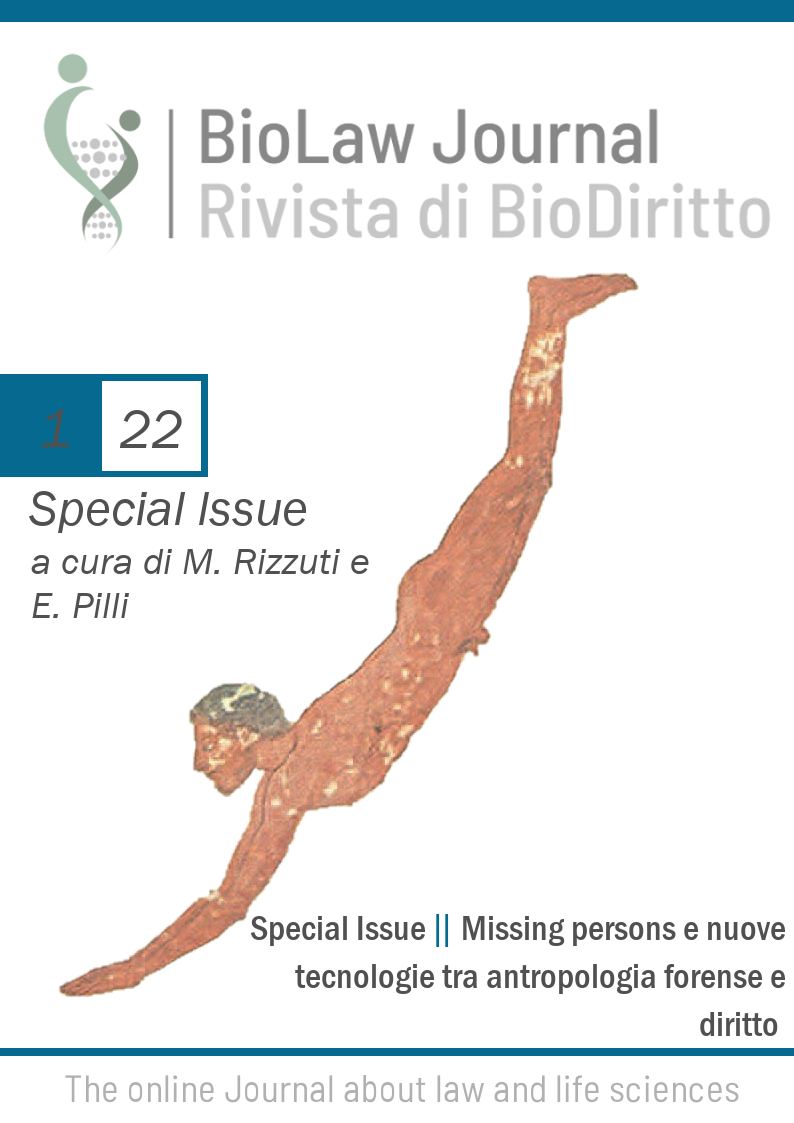Legal and ethical issues of research on the bones of unidentified persons: a comparative perspective
DOI:
https://doi.org/10.15168/2284-4503-2307Keywords:
Law and science, research on human bones, soft law, research ethics, committeesAbstract
This article looks at the legal and ethical issues arising from scientific ad-vances in the fields of bioarchaeological and forensic research on human bones. While DNA-based technologies allow methods of identification that were unthinkable just decades ago, the question arises as to whether legislation and guidelines govern-ing such research are keeping pace with developments. Similarly, new social concerns continue to emerge, as seen for example in the growth of migration and the associ-ated cultural differences. Comparing the legal situation in two civil-law countries (Ita-ly and Norway) and two common-law countries (the UK and the US), we come to the conclusion that – though maybe desirable – no legislation (hard law) is able to cover all legal and ethical aspects of such research, and that soft law in the form of guide-lines, codes of conduct and codes of ethics will continue to fill the legislative gaps. In the same vein, enforcement of these legal and ethical frameworks in the field of re-search would seem to be more in the hands of ethics committees than of the courts.
Downloads
Published
How to Cite
Issue
Section
License
Copyright (c) 2022 University of Trento

This work is licensed under a Creative Commons Attribution-NonCommercial-NoDerivatives 4.0 International License.





